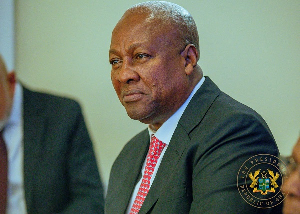The Centre for Socioeconomic Studies (CSS) has called on the National Identification Authority (NIA) to desist from using the non-provision of a digital address code as a basis of refusing eligible Ghanaians for the Ghana Card.
Describing the move as discriminatory, the Centre said the Authority is indirectly excluding the poor from being registered and issued with the card.
A statement signed and issued by a fellow at CSS, Nene Asare explained “as it stands now, a person cannot obtain a digital address code without access to a smartphone and reliable internet service; both of which costs a lot of money, and out of reach for a majority of Ghanaians.”
NIA began its mass registration and issuance of the national identification cards also known as Ghana Card on Monday, November 5 at Adentan in Accra.
According to CSS, an investigation carried by their team reveals that some individuals were refused from registering due to their inability to provide a digital address code.
However, they have argued that “the refusal is illegal to the extent that the provision of a digital address code is not an eligibility criterion under the National Identity Register Act, 2008 (Act 750) as amended by the National Identity Register (Amendment) Act, 2017 (Act 950).”
The Centre further called on NIA to return to all the areas where they had initially refused registration to duly qualified Ghanaians and compensate the affected persons.
“We also wish to call on all public service providers who have the intention to or have actually been refusing public services to persons who do not have the Ghana Card to abandon such intentions or desist from this unlawful practice.
In the meantime, we have instructed our lawyers to investigate the legality of the entire digital address code project,” the statement read.
General News of Wednesday, 7 November 2018
Source: thepublisheronline.com













